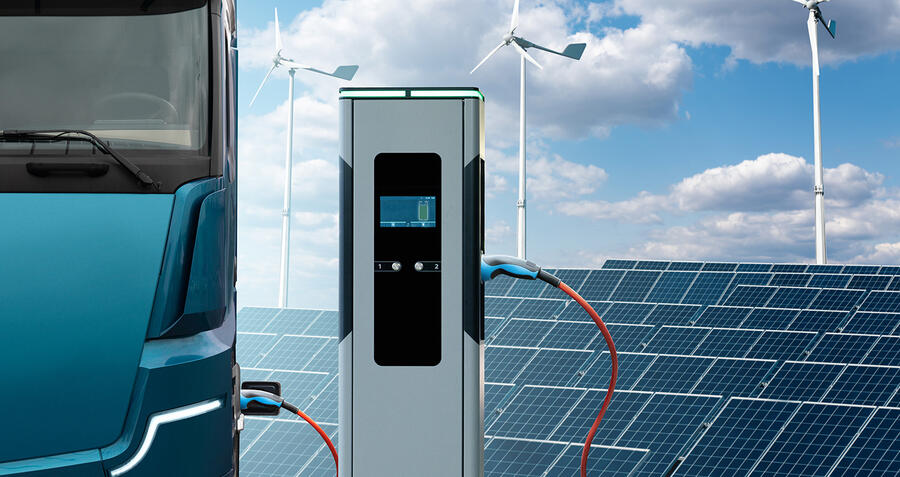As 2022 draws to a close, it’s a good time to look at the seismic shift we’re experiencing within the Australian transport sector.
Until recently, many Australians wouldn't believe that as a nation, we were ready to transition to zero-emission vehicles. Any discussion on the topic would prompt responses like “We don’t have the infrastructure/the political will”, “How will heavy zero-emission vehicles travel long distances?”, “There are no zero-emission vehicles made for Australian needs and roads”, and more.
Time to take action
The recent climate crisis leading to bushfires, frequent floods, and energy crises was enough to make even the non-believers rethink their arguments against the need for a shift in priorities. It’s clear that going green is no longer an option but a necessity – and not just dreaming, but doing.
With the state and federal governments enshrining Australia's net zero-emissions by 2050 target in legislation and committing the investment certainty needed for decarbonising our economy while creating new growth opportunities, the conversation around all forms of green transport has changed.
There’s more confidence in the future of transport going electric, with new players entering the market, bringing in more investment in the technology and the infrastructure required to make the clean energy transition easy and affordable.
The road ahead
Despite the commitment, the road ahead has yet to be discovered and paved. There are many challenges the industry faces as it transitions.
From driver shortages and an aging driver workforce to a skills shortage in the electrification of depots, electric bus repairs and maintenance activities are challenges that will require time, skills training, and planning.
While everyone knows how to refuel a petrol or diesel vehicle, the perception of an electric vehicle (EV) requiring longer to refuel/recharge can seem daunting, requiring both a shift in mindset and access to new technologies that improve vehicle range and reduce vehicle charging times.
Industry conference addressed critical issues
At the Bus Industry Confederation National Conference held in Brisbane in mid-November 2022, the focus was on ‘Moving People > Navigating Change’. The attendees were a mix of vehicle fleet operators, suppliers, service providers, and state and federal government representatives. Critical issues around industry and government responses to zero-emissions targets, delivering on accessibility to EVs and related technologies, improvements and recommendations were discussed and debated, at the same time as addressing the pain points such as worker shortages, improving driver resilience, retention and training.
Another challenge addressed was the contractual landscape in which bus operators work. In its current form, the all-inclusive contract requires a bus operator to take care of both the depot development and bus operations. While significant, these are just a part of what real change looks like. Transitioning to EVs will involve investment in EVs, decontamination of the depot land and development of the property to service EVs with green electrons, complexities, requiring a strategic review of depot property. This will lead to a separation of property development activity from the bus operations contracts.
Energy certainty is another challenge the transport industry is trying to understand and tackle as part of this transition. To go from having easy access to fuel to now relying on the grid for electrons, especially at a time when energy costs are skyrocketing, is unnerving. The transition to EVs can be a success only if it is as seamless and efficient as the existing ways of operation.
Also, when working towards zero-emissions goals, it’s vital for fleet operators to ensure the electrons fuelling their vehicles are green and obtained from renewable energy sources. This adds another layer of complexity in building the infrastructure required to operate EV fleets.
The opportunity and setting up for success
With the imminent increase in demand for energy due to the increased reliance on the grid for fuelling electric vehicles on Australian roads, EnergyAustralia has been building new capabilities to partner with the transport industry and successfully service our customers.
EnergyAustralia’s energy ecosystem for green transport
The complexities of this transition require the experience of an energy expert like EnergyAustralia to facilitate building the EV charging and renewable energy infrastructure needed to transition to electric vehicles (EV) successfully.

Transitioning the transport industry to EVs is not just about installing a few chargers along the way; it’s about looking to the future and understanding what it would mean to have millions of vehicles relying on the energy system to keep them moving.
It requires ensuring the system is ready to meet this increase in demand over time and that it’s achieving our zero-emissions goals through this transition.
We have to look at the big picture and work on building a solution that addresses the EV charging network in Australia as a whole, and that’s how we’ll help set the transport industry up for success through this monumental transformation.
Talk to us about how we can help your business plan for the future of transport.
Email us at greentransport@energyaustralia.com.au




